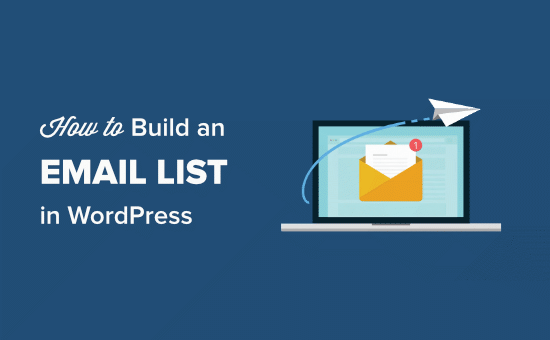In order to ensure that your list of hematologists is relevant, effective, accurate and compliant with the law, you need be attentive to a few crucial aspects. Here are the main considerations:1. Quality and Accuracy of the Data
Source of Information: Make sure that the email list service has reliable sources for example, medical databases, professional directories, or verified opt-ins from Hematologists. The validity of the list is determined by how accurately the contacts were taken.
Updates and verification: Find out how the provider verifies the accuracy of data. Verify email addresses to eliminate inactive or incorrect addresses. It is important to update the list regularly, as healthcare professionals are able to modify their roles or the institution they work for.
Segmentation and specialization: Make sure the list is designed for the field of hematology. It could also be divided by location, experience level as well as hospital affiliation and subspecialty. Well-segmented list helps you to make your outreach more effective.
2. Legal Regulations
Data Privacy Laws – Ensure that you are in compliance with privacy laws that govern data, including the General Data Protection Regulations (GDPR) for Europe and the California Consumer Privacy Acts (CCPA) for the U.S. and other applicable laws. The email addresses collected require the consent of all parties involved.
CAN-SPAM Act: If you are in the U.S., ensure the list is compliant with the CAN-SPAM Act, which governs commercial email communications. Failure to comply could result in a penalty and your emails may be marked as spam.
Opt-in Consent. The email list must consist of hematologists who have opted explicitly in to receive third-party emails. Unsolicited emails sent to individuals without their consent could lead to lower engagement and legal problems.
3. Provider Reputation
Find out the reputation of your chosen company. Review testimonials, reviews and case studies to determine if they are a trustworthy business. A well-established provider with solid history will be more likely to deliver quality, reliable information.
Transparency - Choose a data provider that is transparent terms of where the data originated from and how it was collected. Companies that are unclear and unclear about how they collect data should be avoided.
Customer Support - It's crucial to select a service who offers excellent customer service. A strong support system is essential in case you have any questions or need help with compliance, technical issues, or list customization.
4. Costs and Return on Investement (ROI).
Pricing Model: Take into account the pricing model, regardless of whether it's pay-per-contact, flat-fee, or subscription-based. Ensure that the price is in line with the expected return on investment, while balancing the quality of your list and quantity against your marketing budget.
Refund or Replacement Policy. A trustworthy provider will offer the option of a refund or replacement of obsolete or invalid emails. Clarify this policy's terms before making a purchase.
Value for Money Comparing list features such as segmentation choices and data accuracy warranties with the costs. The most affordable list might not always provide the greatest value if data quality is poor.
5. Data Ownership & Usage
Multi-Use vs. Single Use Multiple Use: Understand the conditions of use for the list of email addresses. You might be able to use the email list only for one campaign with certain service providers, while others allow unlimited use.
Exclusive vs. Shared Lists. Find out whether an email list is yours only or is shared with other buyers. Exclusive lists have a greater level of engagement as people on the list are more likely to not receive numerous marketing emails.
6. Data Integration and Format
Integrity with CRM and email Tools: Make sure your email list is able to be integrated into CRM or email platforms. The list must be in commonly used formats, such as CSV as well as Excel. This allows for easy integration.
User-friendliness: Consider the ease with which you can filter and manage the list. Lists that contain a lot of information that are difficult to work with or segment will reduce the effectiveness and efficacy of your campaign.
7. Ethical Besorgnization
Relevance to Hematologists: Make sure that your email outreach is pertinent for hematologists. If you send them content that doesn't match their expertise might cause a lack of engagement and may negatively impact your reputation.
Beware of spamming practices: Do not bombard recipients with too many emails. If you send out too many emails, it could damage the reputation of the email sender.
Conclusion
A hematologist's list of email addresses is a great method of targeted marketing, however, it is a matter of careful evaluation. You must consider the quality of data, compliance with privacy regulations, and reputation of the provider to get an accurate and useful list. Segmentation, legal compliance, and ethical marketing are essential aspects to be considered when you are trying to maximize your ROI. Check out the top hematologists email list for blog advice.

What Factors Should I Consider When Buying A Urgent Care Email List?
To determine if an urgent care email database is efficient in accuracy, complete, and pertinent to your marketing goals You must consider a variety of aspects. Here are some important considerations. Quality of data and accuracy
The source of the data Be sure that the provider you choose to use collects the data it needs from trusted sources such as medical association databases, professional directories or healthcare databases. Avoid lists that are compiled using scraping or other unreliable methods because they could contain inaccurate or out of date information.
Verification Process: Ensure that the email list has been regularly verified and up-to-date. An authentic email service adheres to a strict verification process to eliminate outdated duplicate, invalid or inactive emails. This ensures high deliverability, and lower bounce rates.
Segmentation & Targeting Segmentation and Targeting details such as the location of the facility (e.g. city, state, or region), its size, and any particularizations (e.g. diagnostics or pediatrics, etc.)) and roles of key decision-makers (e.g. doctors, practice owners). A targeted list enhances the value of your outreach, and also increases the rate of engagement.
2. Legal Regulations
Data Privacy Laws: Ensure the compliance of local and national regulations, including the California Consumer Privacy Act, that is in force to the U.S.A. and also as the relevant European data protection laws. This means that email data must be collected and processed legally with the permission of all the parties involved.
Compliance with the CANSPAM Act Compliance with CANSPAM Act: All email marketing campaigns within the U.S. must adhere to the CANSPAM Act. This means that you must provide an opt-out button and refrain from using a misleading subject line, and include the physical address of your customer when you send emails. Infractions to the law could result in fines or damage to your brand.
Opt-In Consent - Ensure that the recipients of the email address on your list have expressly agreed to receive marketing messages from third-party companies. This decreases the risk of receiving complaints about spam or legal problems.
3. Provider Reputation
Established Providers: Choose a service provider that has an established track record for providing compliant and high-quality lists. You can determine a company's reliability by looking at reviews, testimonials, and cases studies.
Transparency: The company should be clear about how the data was obtained and how often it's changed. If the provider of data cannot provide the exact information, it could indicate low-quality data.
Customer Support: Strong customer support is important if you need assistance in tackling technical issues, list customisation, or even the need to comply. You will get more out of the list if the provider you choose is a good fit.
4. Return on investment (ROI) and cost
Pricing Models: Email list companies generally have different pricing models, such as pay-per-contact or flat fees. It is important to consider pricing models based on your marketing budget and anticipated return. You should balance the price of the list with the quality and relevancy of the data.
Policy on Refunds or Replacements: Reputable suppliers often offer the option of a refund or replacement when a significant portion of email addresses are invalid or not deliverable. Before purchasing, make sure you know the terms of any policy.
Cost-effective: Concentrate on lists that are valuable through precise information and segmentation. Investing money in a quality list will boost the rate of engagement and offer you a greater ROI on your investment.
5. Data Ownership and Use
Single-Use Vs. Multi-Use: Determine whether the list could be utilized for a single campaign or multiple campaigns. Lists that allow multiple uses are more valuable. This is particularly true if you are planning to launch ongoing campaigns.
Exclusive vs. Shared Lists Decide if this list belongs to you alone or is shared among other buyers. Lists shared with others can cause list fatigue since recipients could receive several advertising messages. Engagement rates are likely to decrease.
6. Integration and Data Format
CRM compatibility: Check whether the list of emails is delivered in a format that is that is compatible with the Customer Relationship Manager (CRM) or the email platform. This could be CSV, or Excel. This will facilitate the smooth integration of your campaigns.
Easy to Use Ease of Use: Email lists must be easy-to-manage and segment according to specific parameters. A well-organized list will make targeting and personalization more effective.
7. Ethical Aspects
Content Relevance: Professionals in Urgent Care are busy and often occupied Therefore, your message must be valuable and relevant. Make sure your messages are tailored to their specific requirements like the medical supplies, equipment or technology for healthcare they require. Sending irrelevant material could damage your reputation and decrease engagement.
Avoiding Spam: Be mindful of how frequently you send emails. Spam complaints can be brought on when you send excessive emails, or messages that aren't specifically requested.
The conclusion of the article is:
When purchasing an urgent email list, pay attention to the quality of the information and the legality and reputation of the vendor. Check that the list is segmented and updated regularly and is also in compliance with privacy regulations. Making sure that you send relevant content to a targeted and high-quality list will increase the number of people who are engaged and will help you get an increase in return on investment. Have a look at the top rated urgent care email list for blog recommendations.
